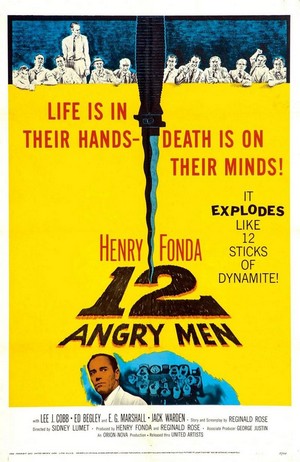
12 Angry Men (1957)
Twelve Angry Men / De Twaalf Gezworenen

Raiting: ![]() 8,9 /10
8,9 /10
Genre: Drama
Director: Sidney Lumet
Stars: Henry Fonda, Lee J. Cobb and Ed Begley
Country: United States
Release date: 10 April 1957
Length: 96 minutes


Raiting: ![]() 8,9 /10
8,9 /10
Genre: Drama
Director: Sidney Lumet
Stars: Henry Fonda, Lee J. Cobb and Ed Begley
Country: United States
Release date: 10 April 1957
Length: 96 minutes